CrowdFarming: would you be friend with your farmer ?
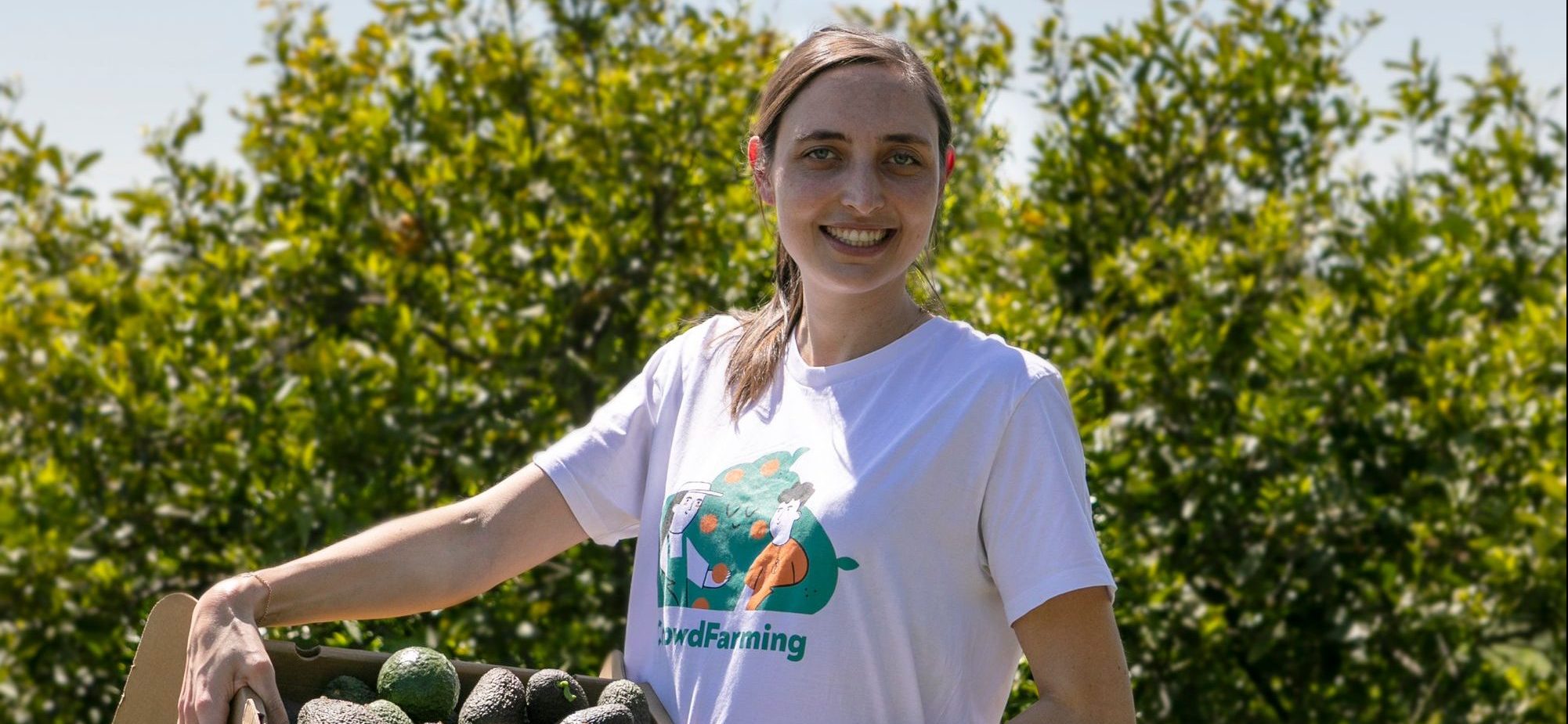
Fresh oranges, artichokes and sheep milk cheese are now a click away. Through the platform CrowdFarming, customers can buy organic food from European producers and go as far as adopting a tree or an animal. A business developed by Juliette Simonin (H.12), who teamed up with two Spanish farmers. A French expat living in Madrid, she just won an HEC Mercure Award for her entrepreneurial vision.
How did your entrepreneurial journey start?
We are four co-founders, including two brothers who are farmers near Valence. Back in 2010, they had tested the concept of selling directly their products to customers who previously adopted an orange tree on their land. When they realized it was working well for their citrus farm, their friends were willing to try too. But it’s not as easy as sizing up a website. Such a project entails logistics and sales management.
In 2017, I met with the Ùrcolo brothers and we got along very well. I was working in the insurance field at Axa and already based in Madrid. My desire to transition into the digitalization of agriculture was growing and I have always been quite appalled by all the stories surrounding what we eat and information that are hidden from the consumer. I wanted to take action in that regard. Five years ago, the agricultural sector lagged behind in terms of digital development. Today, CrowdFarming position itself as a one-stop-shop for producers: we offer all the services they need.
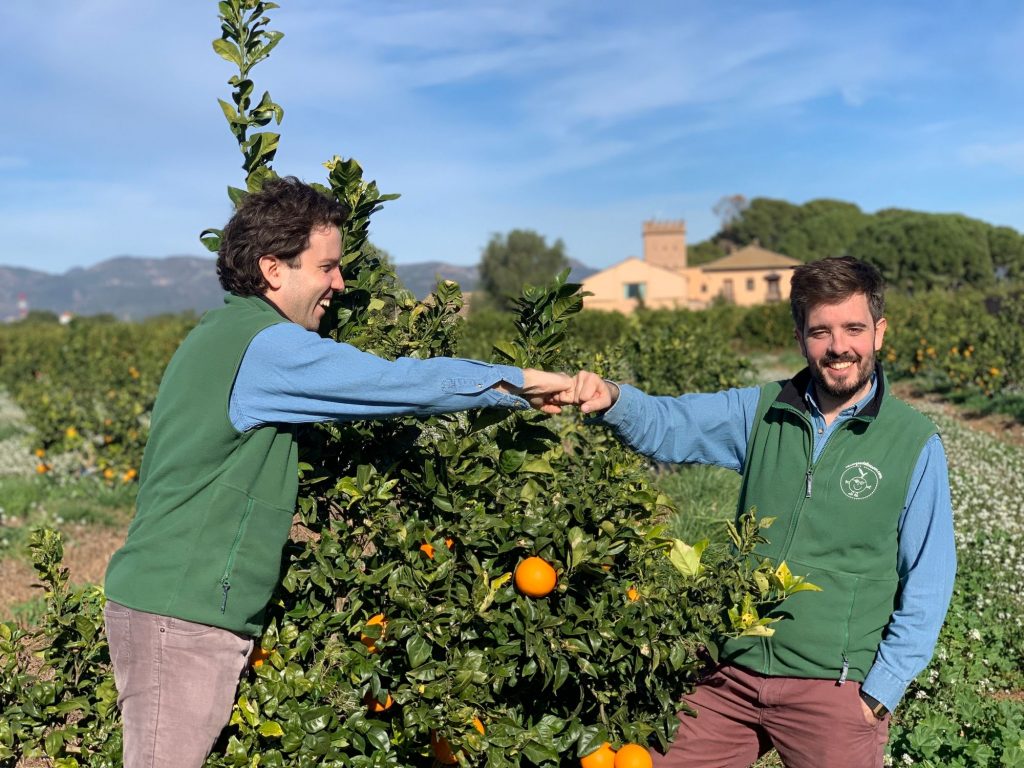
Gonzalo and Gabriel Úrculo ©Sergio Reyes Fotografo
Did you encounter success right from the start?
At first, the website was pretty basic. I’m not even sure the poor customers received a confirmation email after their orders [laughs]. Only three farmers were part of the adventure. Then, there was Covid. We were very worried. It wasn’t guaranteed people would want to buy products delivered at their home. We actually had a great surprise. It was the opportunity for a lot of people to try this new model of buying food online.
In 2020, we grew exponentially. Now, around 300 farmers can send directly to organic food enthusiasts around Europe. Farmers trust our platform because they start with one product and then decide to sell more with us. Between 400 and 500 items are available. We currently have 150 employees spread across four countries : Spain, especially in Madrid where our headquarters are located, but we also have teams in France, Italy, and Germany. In terms of GMV (Gross Merchandise Value), we reached 45 million, this year we hope to reach 60 million.
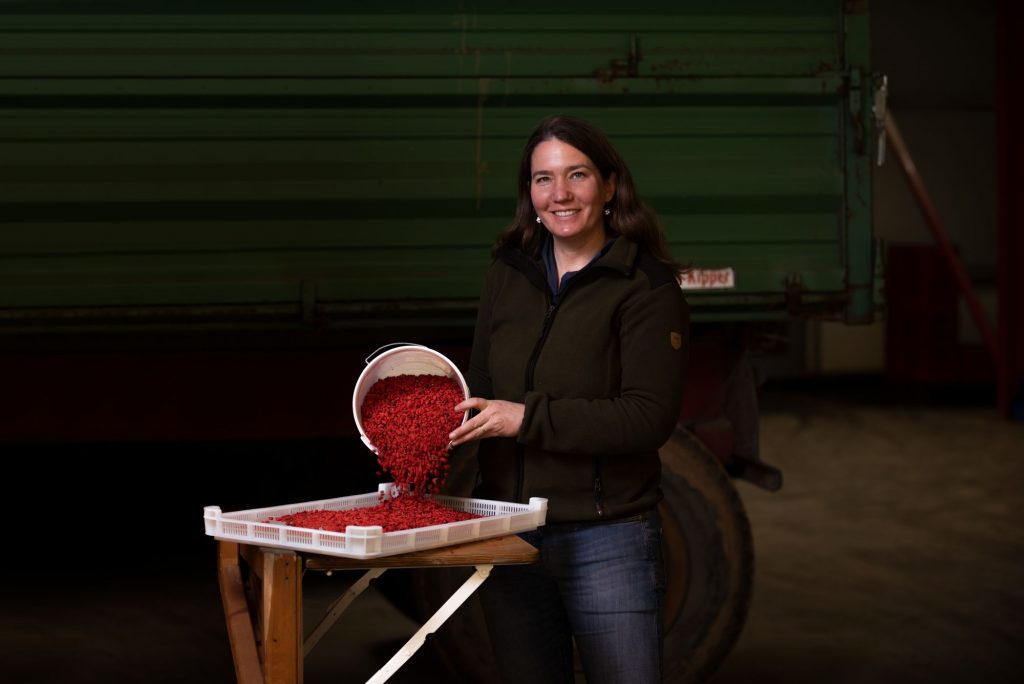
©Sergio Reyes Fotografo
In September 2021, Crowdfarming raised €15 million and made significant investments. How did you spend that money?
This fundraising allowed us to invest in the digital product part: UX, UI, developers, etc. As for the operational part, we invested in the launch of a logistics center near Valencia, still in testing phase. With the current situation, negotiating a number of packages, managing the cost of electricity and handling the boxes can be challenging for a producer. We lacked being able to provide them with a packaging service. This center allows us to optimize deliveries.
We have a zero-stock policy, which means when someone purchases on our website, the product is still growing on the tree – or in the fields if we are talking about vegetables. Our system is quite innovative in the sense that we bring in fruits only after they have been purchased. Then, we package them as quick as possible. This can be difficult, especially this year with the drought. Some farmers have lost their crops. As a result, there have been instances where we couldn’t send out certain crates or had to send them out earlier. However, our consumers understand the situation. We explain it to them clearly, and since they are looking for organic and authentic products, it proves to them that we are not in the business of stockpiling.
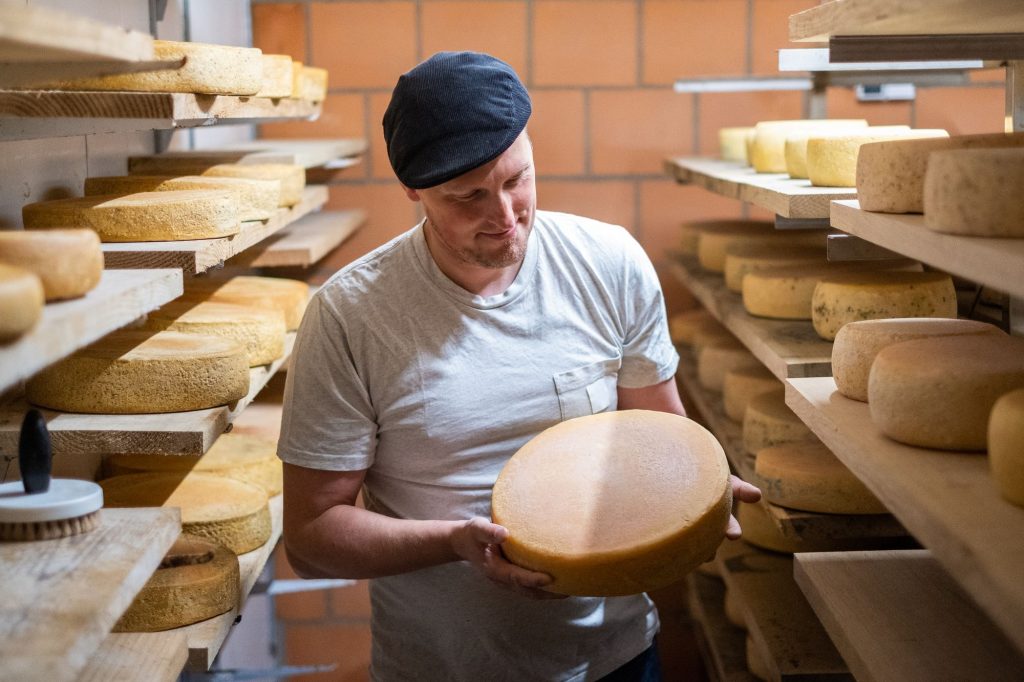
©Sergio Reyes Fotografo
Who order on CrowdFarming ?
Our consumers are predominantly in Germany, France, Austria and the UK. We have noticed that many of our customers are families. We have also implemented a system where people can share their harvests, so we are seeing more and more groups of neighbors or friends buying together because it is more cost-effective to purchase larger quantities. This crowd seeks quality products and wants the producers to be fairly compensated. They are dissatisfied with the traditional system.
On CrowdFarming, they can adopt an orange, a tree, a square meter of land or a sheep. This adoption model sets us apart from other short supply chain systems. The farmers are indeed supported in their production efforts. In exchange, consumers receive feedback on their products and their quality. Visits are organized to “get to know” the tree or animal that has been adopted. And the number of visits is impressive. This mutual interaction fosters a lot of loyalty.
What are some of your most recent challenges?
One of our challenges has been to maintain fair prices for both the consumers and the producers while taking into account the economic situation. We had to find ways to revise our pricing approach and support our producers without having to tell them ‘tough luck!’, since unfortunately it has been the case with certain distribution models. We are committed to finding a balance that doesn’t force producers to sell at a loss.
Another challenge we face relates to our support program for farmers transitioning to organic farming. It usually takes three years to transition from conventional to organic agriculture. During this period, there are no pesticide residues since they are no longer used, but the products are not yet considered organic. Consequently, farmers assume a significant risk as they may experience some crop losses, especially in the beginning. The prices remain generally the same as before, which further complicates the situation.
Therefore, we have implemented a program that allows transitioning farmers to receive a higher price for their products. We also have initiated a training program in regenerative agriculture. Through various agricultural techniques, we empower them to regenerate the soil and go beyond organic practices to restore soil fertility, which is essential considering the challenges posed by drought and the current climate change scenario.
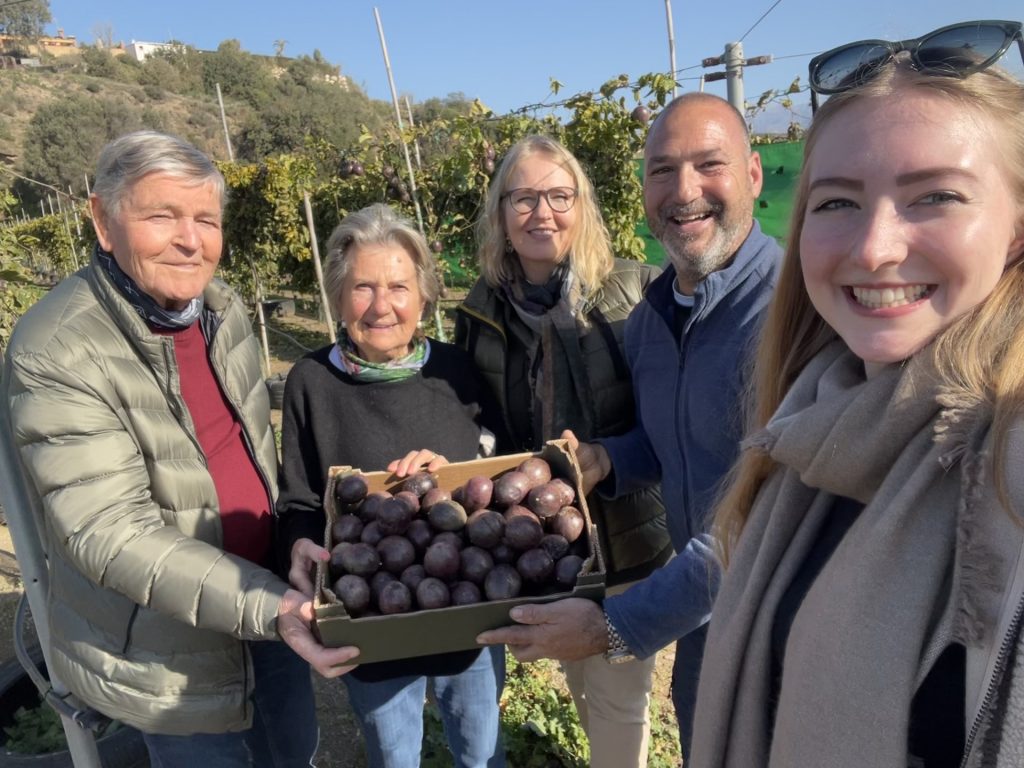
A family visiting passion fruit producer Sergio Quijada Domínguez’s finca in Vélez-Málaga, Spain.
What is your vision of entrepreneurship?
For me the essence of entrepreneurship is, first and foremost, being ambitious. There are moments when we acknowledge we have an ambitious goal, that we will test it and give our best to make it work. However, we understand that it may not succeed. The worst thing that can happen is pretending to have capabilities that are far superior to what we possess. I believe that people highly value honesty, especially in an industry like ours, where we deal with organic products and transparency.
To learn more about technical topics such as regeneration in rural Europe or plastic pollution, you can also check out What The Field, a podcast produced by the CrowdFarming team.
Published by Estel Plagué

